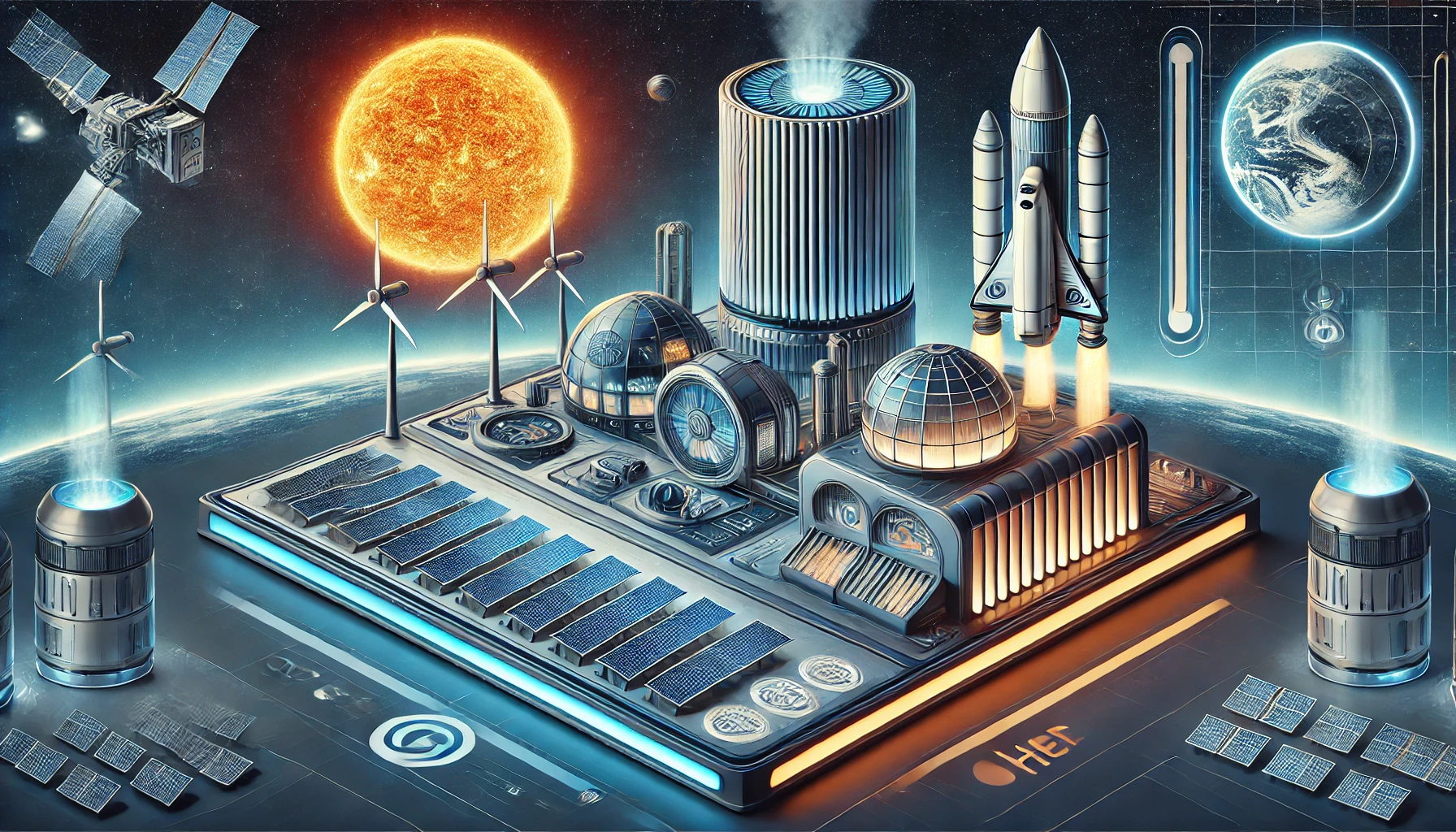Power is a cornerstone of space settlement design in the SPSDC. From life support to overall settlement operations, understanding power systems and effectively managing heat is crucial. Learn the fundamentals here.

Power is the rate at which energy is transferred or used, and it’s vital for keeping life support systems and other essential operations running smoothly. Understanding the principles of energy conversion is key to optimizing power sources in space.
All energy conversions, whether from solar panels or nuclear reactors, are subject to the second law of thermodynamics, which dictates that some energy will always be lost as heat. Managing this heat is just as important as managing waste materials.
Nuclear power plants, both fission and fusion, convert heat energy into electricity. This process involves heating a primary fluid, which transfers heat to a secondary fluid, creating steam that drives turbines.
Efficient heat management is critical to maximize output. The Carnot efficiency sets a theoretical benchmark, but real-world applications often fall short due to energy losses.
Solar panels convert sunlight into electricity, making them a popular choice for space settlements. However, their efficiency can be affected by radiation damage, temperature, and aging.
To estimate a solar panel's power output, consider factors like nominal efficiency, degradation rate, and operating temperature. Over time, solar panels degrade, especially under intense radiation.
Effective heat management is crucial in space environments where convection is not possible. Excess heat must be radiated away using specialized radiators or other cooling systems.
This requires careful consideration of heat rejection systems, as well as the placement and design of radiators to maximize efficiency. Just as with waste disposal, planning for heat dissipation is key to maintaining a stable environment.
To calculate the efficiency of a solar panel, use the following formula, considering factors like operating temperature, nominal efficiency, and degradation over time. Judges often ask for numerical evidence, so make sure your calculations are clear and well-documented.
Managing power and thermal systems in space settlements is a balance of energy efficiency and heat dissipation. Consider the unique challenges of space environments and select the power source that best meets your design's needs.
By understanding the principles behind each power source and planning for heat management, you can design a system that supports a sustainable space settlement.